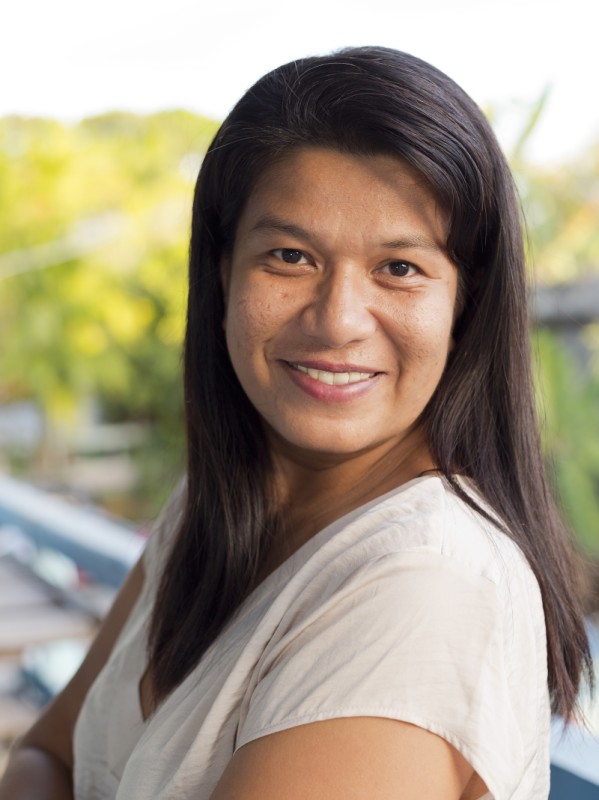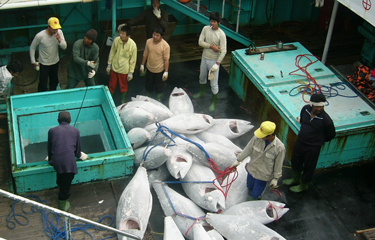The non-governmental organization Human Rights At Sea earlier this month published a report with numerous recommendations to better protect fisheries observers who monitor fish catches by tuna vessels in the Pacific.
The report, Fisheries Observer Deaths at Sea, Human Rights and the Role and Responsibilities of Fisheries Organisations, highlights “the often challenging and solitary working conditions for observers who are away at sea without any immediate physical support,” according to the group – a registered charity in England and Wales that promotes the development and enforcement of human rights at sea.
The NGO recommended that investigations of human rights violations against fisheries observers and crew should be “transparent and unimpeded.” The organization made 10 recommendations for suggested implementation, including regular engagement with Interpol about human rights violations, that human rights violations should be reported to the observer’s program, and that full disclosure should be made of any vessel monitoring system (VMS) data associated with the death or disappearance of an observer. Another recommendation calls for employers to compensate families for their loss.
“Incidents of unnecessary, unexplained, and unlawful observers’ deaths, including those in tuna fleets on [Marine Stewardship Council]-certified vessels, highlight flaws in the management of observers globally and which meads urgently addressing to ensure that the system can operate safely, securely, and effectively,” the NGO added.
The report cited the case of Pacific observer Eritara Kaierua, who was found dead in March aboard the Taiwanese-flagged Win Far No. 636. Kaierua, from Kiribati, left behind a wife and four young children. The case of James Junior Numbaru of Papua New Guinea, who died while working as an observer on board the purse-seiner Feng Xiang 818 drew attention in 2017 and led to calls for reform of observer programs from WWF and the Association for Professional Observers. At least one observer death has been recorded each year since 2015, according to APO President Liz Mitchell, speaking to The Guardian in May.
Due to COVID-19, the requirement that 100 percent of purse-seine tuna boats carry fisheries observers in the Pacific, has been temporarily suspended since March. That suspension was due to lapse on 31 July, but on 23 July, the WCPFC extended that requirement until 31 October, 2020, meaning no coverage is required for purse-seine vessels or at-sea transhipment for purse-seine vessels.
"The decision is based on our mutual desire to begin developing the necessary health related safety protocols, standards, and procedures to enable observers to be swiftly and safely placed on fishing vessels and carrier vessels when travel and port entry restrictions are lifted in the region," WCPFC Chairm Jung-re Riley Kim said in the announcement.
In response to the death of Kaierua, who died on-board a Marine Stewardship Council-certified vessel, the MSC said it will allocate GBP 100,000 (USD 128,000, EUR 110,000) of funding for projects and initiatives aimed at improving observer safety at sea. The funds will be deployed through the MSC’s Ocean Stewardship Fund, and will support initiatives focused on the use of electronic monitoring and other technologies designed to support observers and deliver assurance of fishing operations, the group said.
“The MSC’s mission is to end the global crisis in overfishing. This is an enormous and complex challenge, supported by the extraordinary hard work and efforts of many people – including observers,” MSC Chief Executive Rupert Howes said. “Governments, law enforcement agencies, and regulatory authorities must do more to ensure observer safety. But we recognize – as part of the wider sustainable seafood community – that MSC also has a part to play. We want to do so in a way which is practical, by helping those who are already working in this field, pilot and test promising initiatives. By working collaboratively with others, we believe we can help protect the human rights of observers and support them to carry out their vital work safeguarding our oceans.”
In an interview with Pacific reporters on 14 July, PNA CEO Ludwig Kumoru told said ongoing travel restrictions and border closures related to COVID-19 made the suspension and its subsequent extension necessary.
The health of observers is always a priority, Kumoru said, but the PNA would like to recommence the program as soon as it is safe. Electronic and video monitoring can play a role in checking the legality of the catch and in supporting conservation, but it is human observers that provide the most detailed and reliable information, he said.
“You really need to have human observers, but in this case, there is give and take we have to do. We compromise on something, but it’s not completely compromised. We are still monitoring boats through the VMS,” he said.
The Papua New Guinea Fishing Industry Association has taken issue with the PNA choosing to continue fishing despite the suspension of observer coverage.
“We don’t support the manner in which the PNA ... has gone ahead to use the COVID-19 pandemic as an excuse to not place observer on purse-seiners for their MSC trips," association president Sylvester Pokajam told Islands Business. "In our opinion, the MSC office should suspend the PNA MSC trips for the duration of the observer waiver til 31 July, 2020."
Pokajam also criticized the Western and Central Pacific Fishing Commission for halting the observer coverage requirement. The decision could threaten the association's newly-acquired Marine Stewardship Council certification, he said.
“All PNGFIA MSC trips will apply compulsory PNG observer placement on board all locally-based foreign fishing vessels and PNG-flagged vessels for its MSC-authorized trips fishing within its ... waters. PNG has no intention of compromising its MSC certification standards and will therefore not come up with any alternative traceability assurance system than those systems explicitly articulated in its public certification report.”
However, as the COVID-19 pandemic continues, there are likely to be ongoing and new threats to observers, according to an April report prepared by Brisbane, Australia-based resources consultancy MRAG Asia Pacific, commissioned by the PNA.
Observers' income will continue to fall, repatriation of observers to their home countries will face ongoing challenges, and threats to observer safety will remain an issue, the report found.
Photo courtesy of Human Rights At Sea







